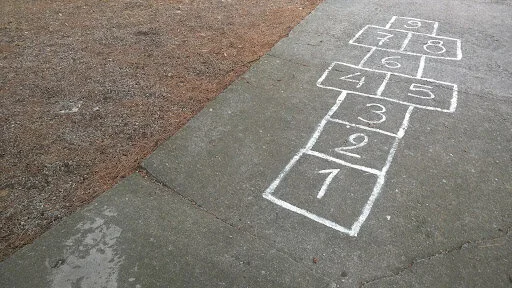Are You Ready For Change?
“Awareness is the greatest agent for change”
Managing Life's Unpredictability
Start and Stops
So you want to change, and you think therapy will help. It can, and very often does. When we put effort and focus into something, it will likely improve. These are usually START or STOP activities. We might want to stop worrying, stop arguing, stop smoking, start exercising, or start a new career. You get the idea.
Change is Complicated
Simple right? Well, the problem is... not only are these things difficult; but change itself is much more complicated than we realize. There is a misconception that if we have willpower, we can make any change we want. This isn’t often the case (a broken New Year’s resolution can be a quick reminder of this). Psychologists have found that before we even look at the steps toward a specific change, it is important to reflect on how we feel about change, in the general sense.
“Your life doesn’t get better by chance, it gets better by change”
Readiness To Change
Psychologists, James Prochaska and Carlo DiClemente, created the Transtheoretical Model (also called the Stages of Change Model) in the late 1970s. They were researching smokers and compared those who were able to quit on their own, with those that needed more support. They noticed that smokers were more likely to quit without support- If they were ready to change. Readiness mattered most.
In other words, everyone in the study was a smoker and they all wanted to quit. It was noticed that the relationship to the change itself was a defining element in the ability to quit. Also, the process of change was found to be less linear and more of a cyclical process. Through this work, the Five Stages of Change Model was created. Most commonly used for addictive disorders, but it can be applied to almost any desired behavior change.
“The only impossible journey is the one you never begin”
The Five Stages of Change
The Stages of Change Model identifies lasting change as occurring through five stages: Precontemplation, Contemplation, Preparation, Action, and Maintenance. A great deal of time is spent in the first four stages, often moving back and forth between them. It is understood that people spend different amounts of time in each stage, but will pass through each one on the road to meaningful and lasting change.
What are the Stages?
Precontemplation - People in this stage have little insight or awareness of the problem, and therefore no intention of changing behavior. Often it is other people who notice the problem rather than the person who needs to change. There is a general denial of the problem and often feelings of hopelessness. The “ignorance is bliss” stage.
Contemplation - People in this stage have an increased understanding that a problem exists, but display no meaningful commitment to change. The person is still conflicted about change, and tends to go back and forth about the desire to make new habits. They struggle to fully understand the problem, and may spend a lot of time in this stage. The “on the fence stage”.
Preparation - The person is ready for change. There is awareness and intention to change with less ambivalence about making the change. This is the time when a plan might be developed with details of what needs to take place. The “testing the waters phase”.
Action - Efforts are being made through particular actions to bring about the desired change. Not only does change behavior occur during this stage but there is also a continued expanded awareness, emotions, and thinking of wants and needs related to the change. The “I have power over this” stage for 0-6 months.
Maintenance - Sustained change happens and new behavior starts to replace old behavior. The focus is on maintaining progress and avoiding old behaviors. This stage can last from 6 months to a lifetime. The work here is to continue with improvements and prevent anything that may compromise the success. The “I will keep this going” phase.
Relapse - If lasting change occurs there is a permanent exit after the Maintenance stage. Alternatively, there may be an unofficial 6th stage called “Relapse”. This person may have slipped and started repeating behaviors that they are trying to change. Or there might be new problematic behaviors in place of the desired change. This type of slipping is often considered normal and part of the process. Feelings of shame about the behavior may be more present when the threat of relapse occurs. The “I fell off the wagon” phase.
Click the video above for an overview on the Transtheoretical Model (Stages of Change).
“Life is a series of relapses and recoveries” - George Ade
Why Do The Stages of change matter
Change is more manageable when we view it through the lens of the Stages of Change model. It can normalize the process as a human process, rather than an aspect of our personal willpower to change something. Knowing that each stage presents its own unique struggle, breaks down the task of change into manageable pieces. This is true for you and anyone else you know who desires change. So it also helps us to understand others, and where they fall relative to a behavior change we would like to see.
Overall, the Stages of Change model reminds us that change takes time and that there are predictable tasks along the way. It shows that the messiness of change is normal. The ambivalence and the setbacks are all part of the complicated process. Change is not the straight line we crave, it’s the dance of thoughts, feelings, and behaviors that ultimately get us where we want to go. For a handout on the Stages of Change, click the button below!
“The only way to make sense out of change is to plunge into it, move with it, and join the dance.
”
- Alan Watts
Behavior change is a complicated process. Knowing where you are on the Stages of Change can provide insight and guidance about how to find lasting success. Psychotherapy can be useful to help guide someone on this journey. Therapy provides a non-judgmental space to take an honest look at not only what someone wants to change, but why and how it matters. If you are looking for this type of support, or have any questions, don’t hesitate to reach out, by using the form below.





